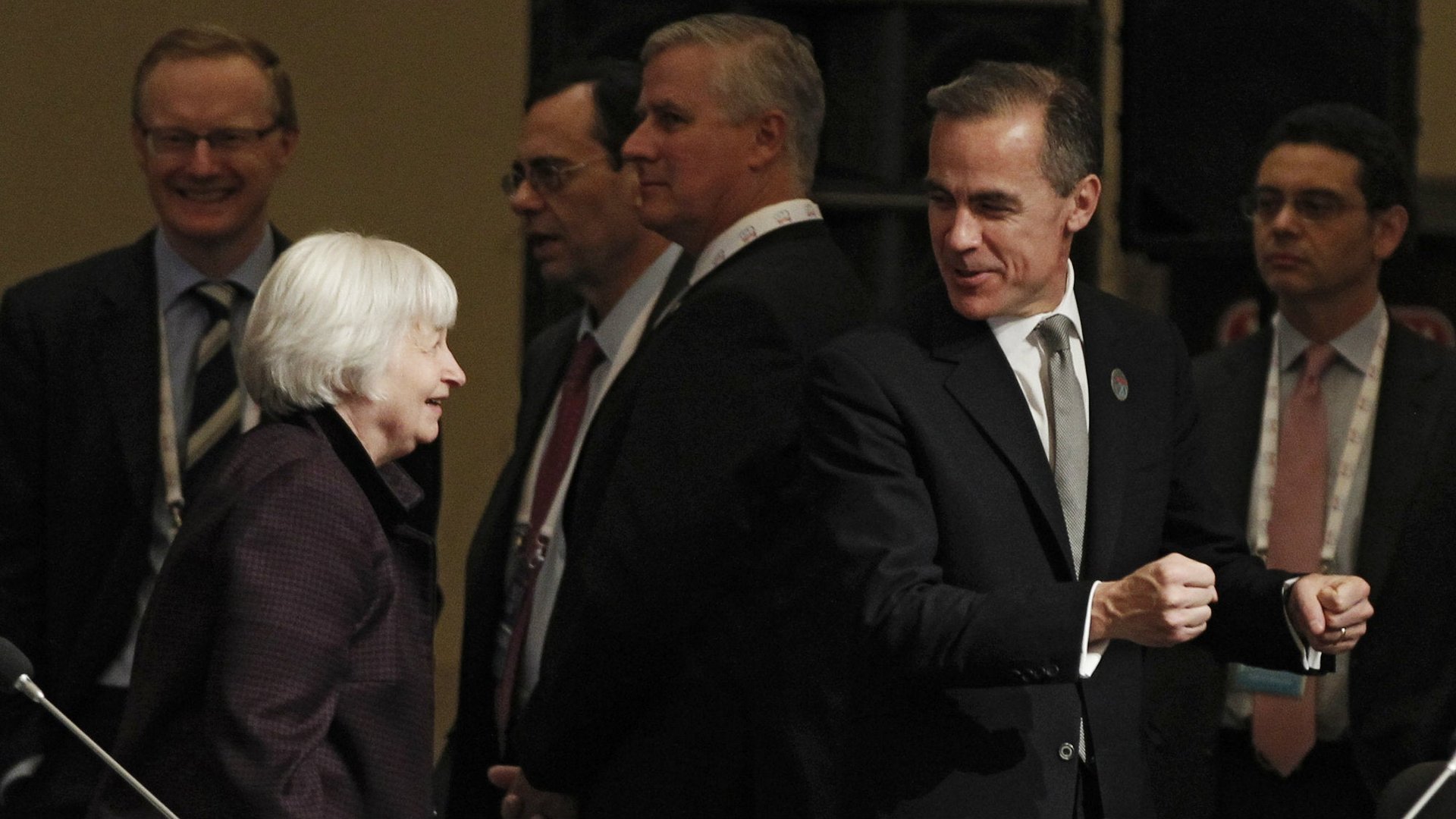Central bank chiefs in the US and UK seem very sure of themselves, so it’s probably time to worry
Even if you’re only a little superstitious about tempting fate, the latest comments from American and British central bank chiefs may have you stockpiling gold and donning a tinfoil hat.


Even if you’re only a little superstitious about tempting fate, the latest comments from American and British central bank chiefs may have you stockpiling gold and donning a tinfoil hat.
Mark Carney, the governor of the Bank of England and chair of the international Financial Stability Board, said this week that issues of the last financial crisis had been “fixed“—yes, fixed! In a letter to G20 leaders (pdf), he said:
A decade after the start of the global financial crisis, G20 reforms are building a safer, simpler and fairer financial system. The largest banks are considerably stronger, more liquid and more focused… G20 reforms have now addressed the fault lines that caused the global financial crisis.
So, job done? Among the achievements Carney recounts are banks being forced to hold more high-quality capital, more regulation of so-called “shadow bank” activities, and reforms to the “dangerous web” of derivatives markets. He does warn against complacency, though, and says more still can be done to address “structural vulnerabilities” in the asset management industry and boost transparency in derivatives markets.
Still, Carney’s letter comes across as an invitation for policymakers to take a victory lap. Janet Yellen was already ahead of him. Last week, the chair of the US Federal Reserve said at a Q&A in London:
Would I say there will never, ever be another financial crisis? You know probably that would be going too far but I do think we’re much safer and I hope that it will not be in our lifetimes and I don’t believe it will be.
“Our lifetimes.” Yellen is 70, and even then this statement seems optimistic. A recent Quartz analysis found that every single US GDP forecast the Fed has made since 2008 has been too optimistic. The Fed has hiked interest rates twice this year, despite somewhat slow economic growth so far in 2017.
Other central bankers around the world seem ready to shake off the shackles of the financial crisis as well, even if they aren’t using such direct language as Yellen and Carney. Last week, Mario Draghi, governor of the European Central Bank, sent the euro to its highest level in more than a year by proclaiming that the euro-zone economy was improving and that he was “confident” the bank’s policies working. Both the Bank of Canada and Sweden’s Riksbank have also recently suggested that their economies probably don’t need any more monetary stimulus.
This sort of confidence shouldn’t automatically be cause for concern. The global financial crisis began almost a decade ago, so it’s about time that a durable recovery took hold. At least, we hope so.